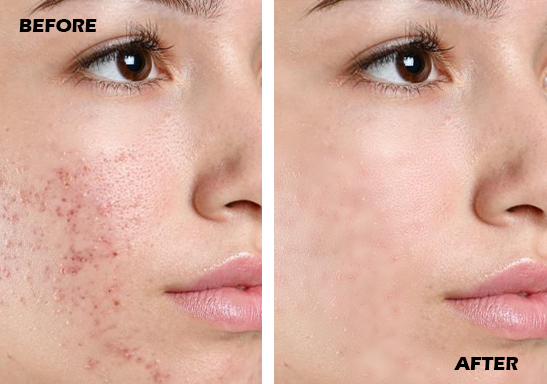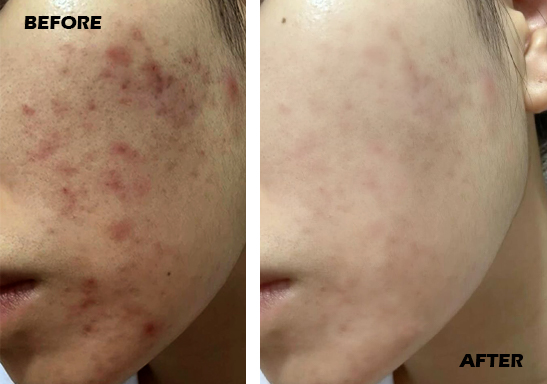Acne Scars
Acne scars are a common aftermath of acne breakouts. They can be raised, indented, or discolored. While there’s no magic eraser for scars, various treatments can minimize their appearance and leave your skin smoother.


Symptoms
Acne Scar can be in different types which cause skin surfaces to have uneven texture. These may include papules or pustules flat red bumps that may contain pus, pustules red elevated bumps rounded at the top that contain pus, comedones small white or pale red bumps on the skin that may be feel smooth to touch, and nodules solid rounded lumps under the skin that are firm to the touch. Furthermore, some people may develop hyper-pigmentation, for instance, brown patches, or erythema, which remain even after the formation of a scar has cleared, or even the formation of the scar itself. It turns out that these changes are capable of influencing self-esteem and further confidence levels, thus leading most people to look for actual and efficient treatments for improvement.
Causes
The leading cause of acne scars is the formation of scar tissue after inflammation from acne lesions. During the formation of an acne spot, the skin’s healing response can cause either an increase in the local deposition of collagen or a reduction in collagen at the area and thereby create scars. Some of the determinants included the degree of acne inflammation, the act of popping or squeezing the pimples among other aspects of skin type. There could also be hormonal changes, genetic factors as well as other external factors that in turn generate the probability of having those acne scars in a number of individuals.
Treatment
Acne scar treatment depends on their classification as well as their degree of severity. These procedures include; chemical peels, laser therapy and the most recent technique known as microneedling, all of which serve to enhance skin regeneration and feel. The skin scar prominence can also be lowered with lotions containing retinoids or alpha hydroxy acids gradually. In more serious cases the doctor may suggest the use of IN tradition measures such dermal fillers to manage deeper scars. The consultation with the dermatologist is the next step in the process to establish the treatment regimen which will meet specific requirements of a patient.
Tips from our experts
Our specialists recommend that skin management against acnes and potential scarring should be more consistent. To keep skin clean, it is recommended that one should avoid scrubbing the skin but rather use products whose main ingredient is not comedogenic, and lastly using appropriate moisturizers on the skin. Skin that should be left alone includes the pimples, blackheads, whiteheads and other spots as popping them can cause scars. Exercise protection against the sun is essential, since sun exposure will aggravate this condition. Last of all, a patient may decide to go to the dermatologist and constantly visit them in order to take care of skin as well as to get guidance.
